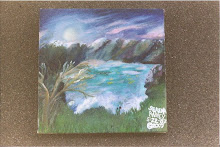Sarcasm is America's first language.
Sitcom writers have studied sarcasm and irony so closely that if you don't understand every detail of the life experiences of fictional characters, you can't keep track of what the live studio audience is laughing about.
Phoebe says, "Don't get all testosteroney", and Chandler looks perplexed and a little didactic as he often does, and says, "The real San Francisco treat, by the way." What does that mean? It's not just a play on words. To get it requires sharing the writers' ideas of the intended main viewership's attitudes toward everything they are expected to associate with testosterone, San Francisco, 1970's TV commercials for convenience foods, convenience foods themselves, spacey semi-alternative people such as we are to think Phoebe represents, the attempt to invent words, and fairly straight but perfectly open-minded people such as Chandler is supposed to represent, and possibly other culture mileposts. And most viewers do. But it depends on sarcasm. Chandler is saying, "It would be ridiculous to use the word testosteroney, it would be ridiculous to be very serious and professorial about TV commercials or convenience foods, especially from our childhoods, and it would be ridiculous to try to understand Phoebe."
All sarcasm and irony can express are infinite grades of , "it would be ridiculous...." In the wash of absurdity we choke under daily, that is an indispensable statement.
But it states the problem. We know there is a problem with absurdity. We seek solutions, as people with a problem always do.
Sarcasm can never offer a solution.
So don't abandon irony.
But never depend on it. Every time someone says, "It would be ridiculous," ask what would be true. Help the sarcasts (real word) finish their sentences.
Until next time, think clearly.
Wednesday, August 13, 2008
Subscribe to:
Comments (Atom)




